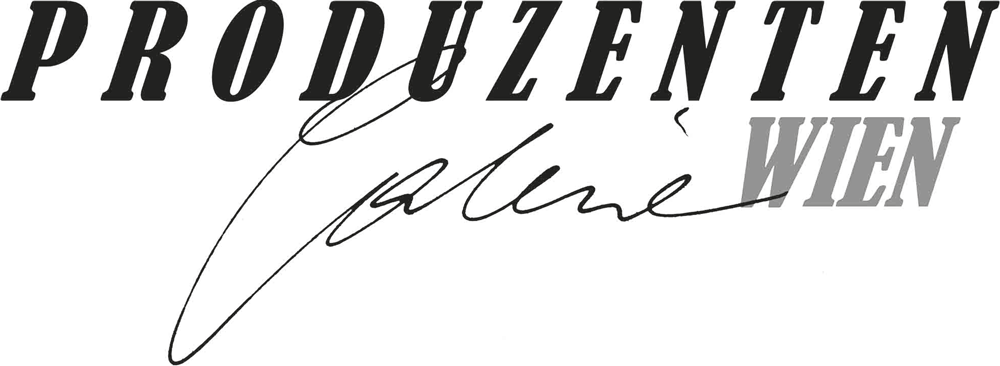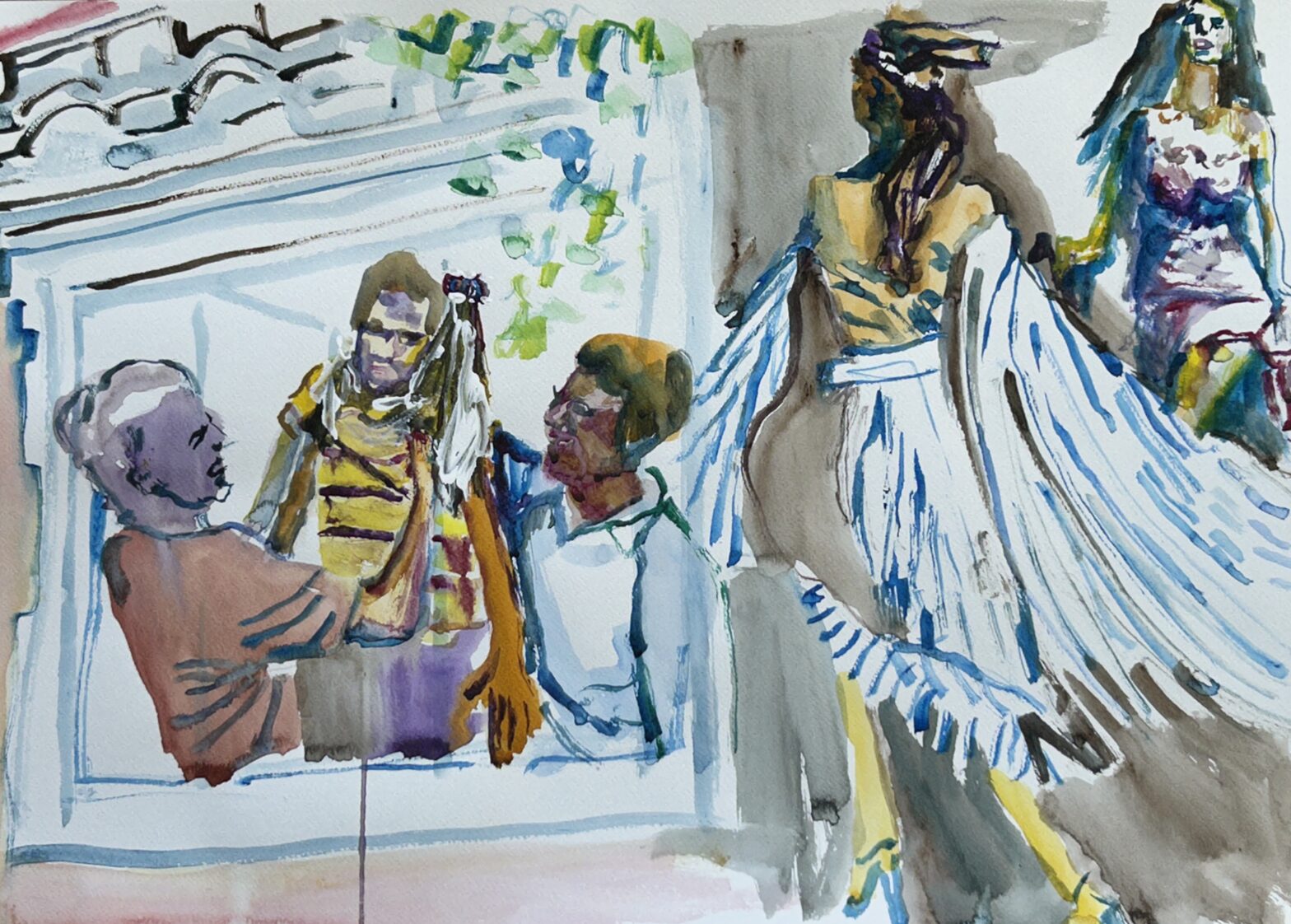January 6th, 2024
Jay Pather talked about his production of the play “hold still” by Nadia Davids. It’s about a married couple, he the son of Holocaust survivors, she the daughter of anti-apartheid fighters and their son who hides a refugee who is wanted by the police. The parents are outraged that their son is hiding the illegal immigrant.
Dramatically well constructed, this play is like a mirror of our society in Europe rather than a play from South Africa. Nevertheless, it had an extraordinary emotional impact on audiences in South Africa.
This piece reminded me of Dürrenmatt’s „Visit of the Old Lady“ and Max Frisch’s „Biedermann and the Arsonists“. Both pieces are based on a mortgage from earlier times:
When the old lady visited, all the residents of a small town had already spent all of the money that they had actually wanted to vote on as a bounty for revealing the former rapist.
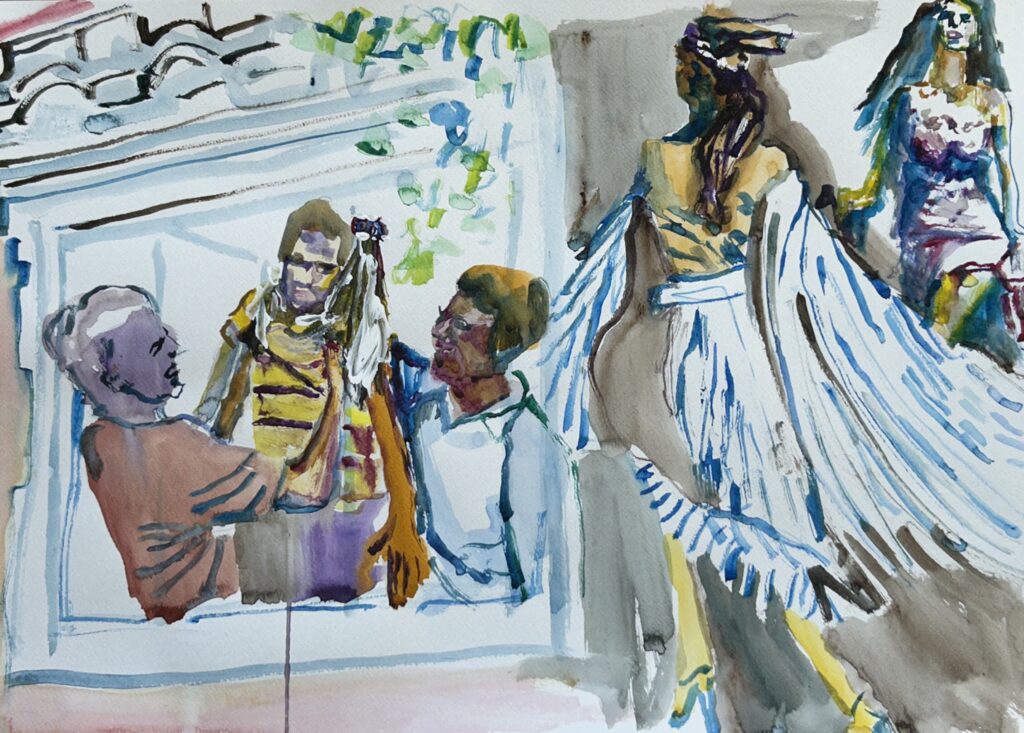
In „Biedermann and the Arsonists“, Biedermann originally threw out one of his employees in his company in a fit of rage and is now trying to repair his self-image as a good person and takes in a tramp to offer him accommodation in his house. The fact that the tramp takes petrol cans with him does not worry him, but rather reinforces his liberal, bourgeois attitude and openness.
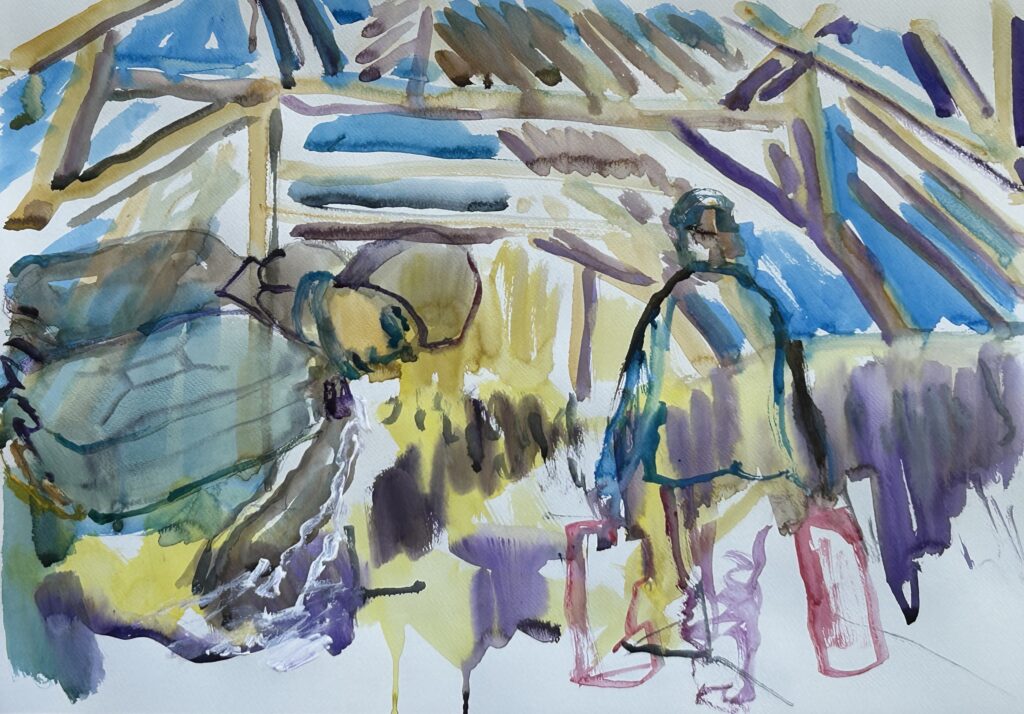
Both predispositions were set before the actual dramatic action and have nothing to do with a free decision at the moment of action. Biedermann is even convinced that it is right to store petrol cans in his house.
The precarious question now is for ourselves, to determine whether we have already taken out a mortgage before, or are even currently committing to something that will have the greatest influence on our actions in later years. Or to put it another way, what possibilities are there for an ordinary average person like us to recognize in time: fraud, betrayal, robbery,…?
To put this on a political level:
Could the inability of European governments to deal with the regulation of immigration and refugee movement be interpreted against this background of a mortgage? For example, the effort to make up for the crime of the Holocaust, but perhaps also that of colonialism, in an effort to establish an open and liberal society. The naivety of wanting to see the impossibility of an open immigration society could be interpreted as a result of this reflex of wanting to absolutely adopt the identity of an open, liberal society.
Did enlightment change the whole image of the evil?
The question of the mortgage reminds me of Goethe’s Faust: it is the pact with the devil, it is the temptation to connect with the devil, to sell ones soul, no matter what the cost, just to be young again or just for that to achieve the desired success.
In contrast to Duerrenmatt and Frisch, with Goethe it is a willful decision to enter into a pact with the devil: “to recognize what holds the world together deep down”. First Faust invokes the earth spirit, the active force of nature, then he even wants to take his own life and poison himself, but then the devil appears to him and promises to fulfill all his wishes.
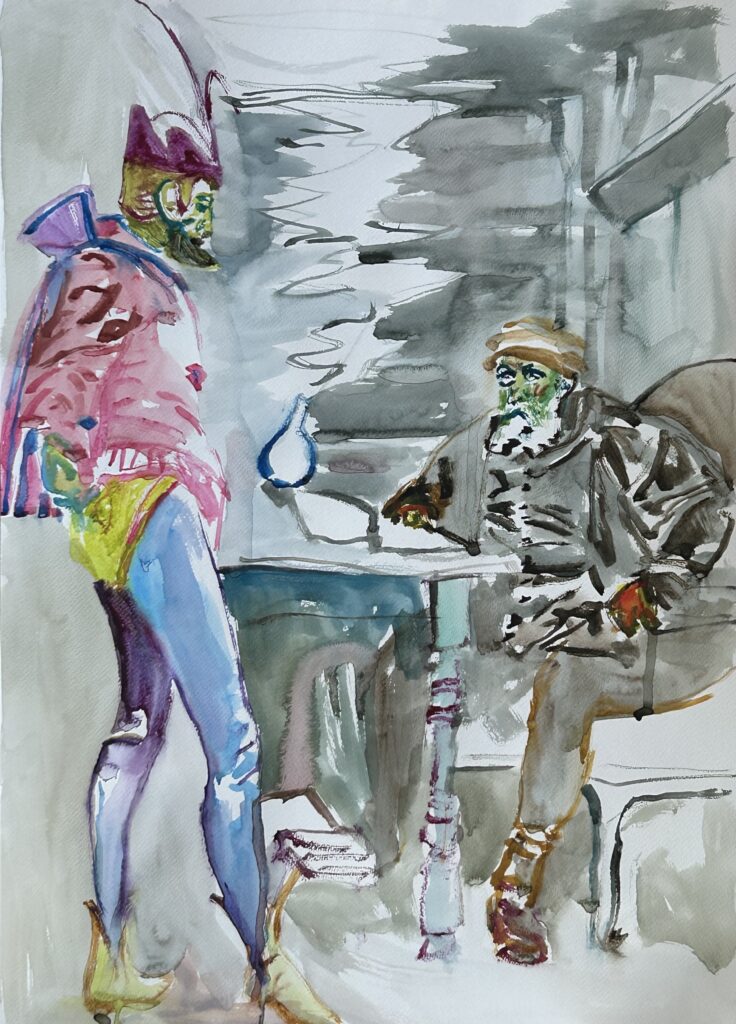
The question is, whether Goethe is not too caught up in the black and white painting of good and evil in the religious value system. Today we would say, it is not about a willful decision to call Mephistopheles. It is rather about the pitfalls of life that gradually lead to such a mortgage as shown by Frisch and Dürrenmatt, a pact with the devil. It is more the case, as often happens with a financial mortgages, when interest rates rise sharply, it can no longer be repaid.
In war you probably kill soldiers without knowing it or in a duel it is better to survive yourself. But in normal life?
Deceit, betrayal and robbery are everywhere but where does it become so fatal that it kills you? What don’t we see? Or what are the boundaries that we cross once and then there is no stopping us from returning and the catastrophe only shows itself later.
Is asceticism an answer?
The monk?
Should we save or waste our reserves?
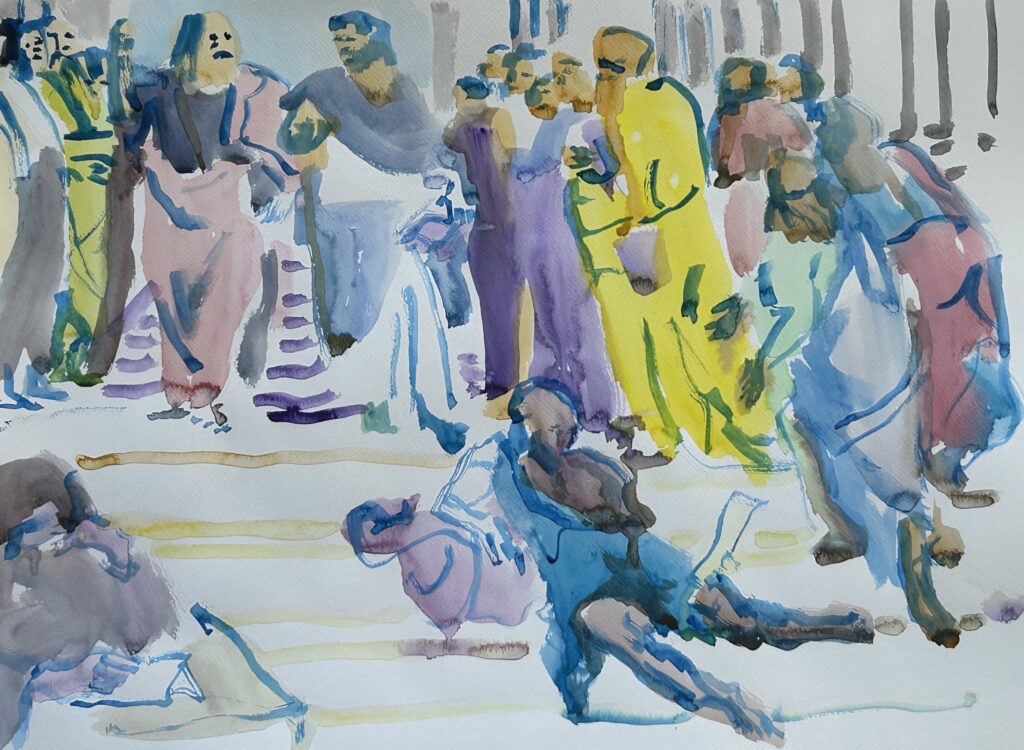
The three questions:
1.
Why is Ripley so popular with women?
Was I the anti-Ripley as a child?
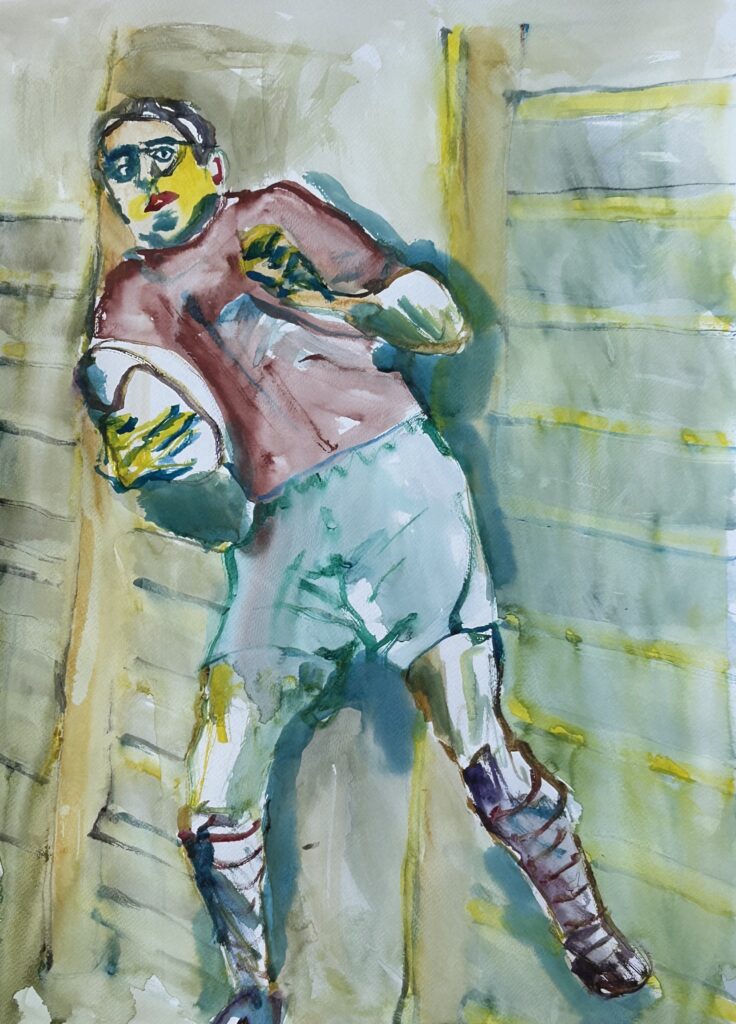
2.
What are the preemptive consumptions of myself?
3.
The theory of Thucydides: the equilibrium as the goal of political developments, but also possibly as a trap.
Examples:
Israel: the occupied territories system
Europe: laissez faire in immigration policy
South Africa: The Oppenheimer Conference and the coalition of white capital with the ANC
